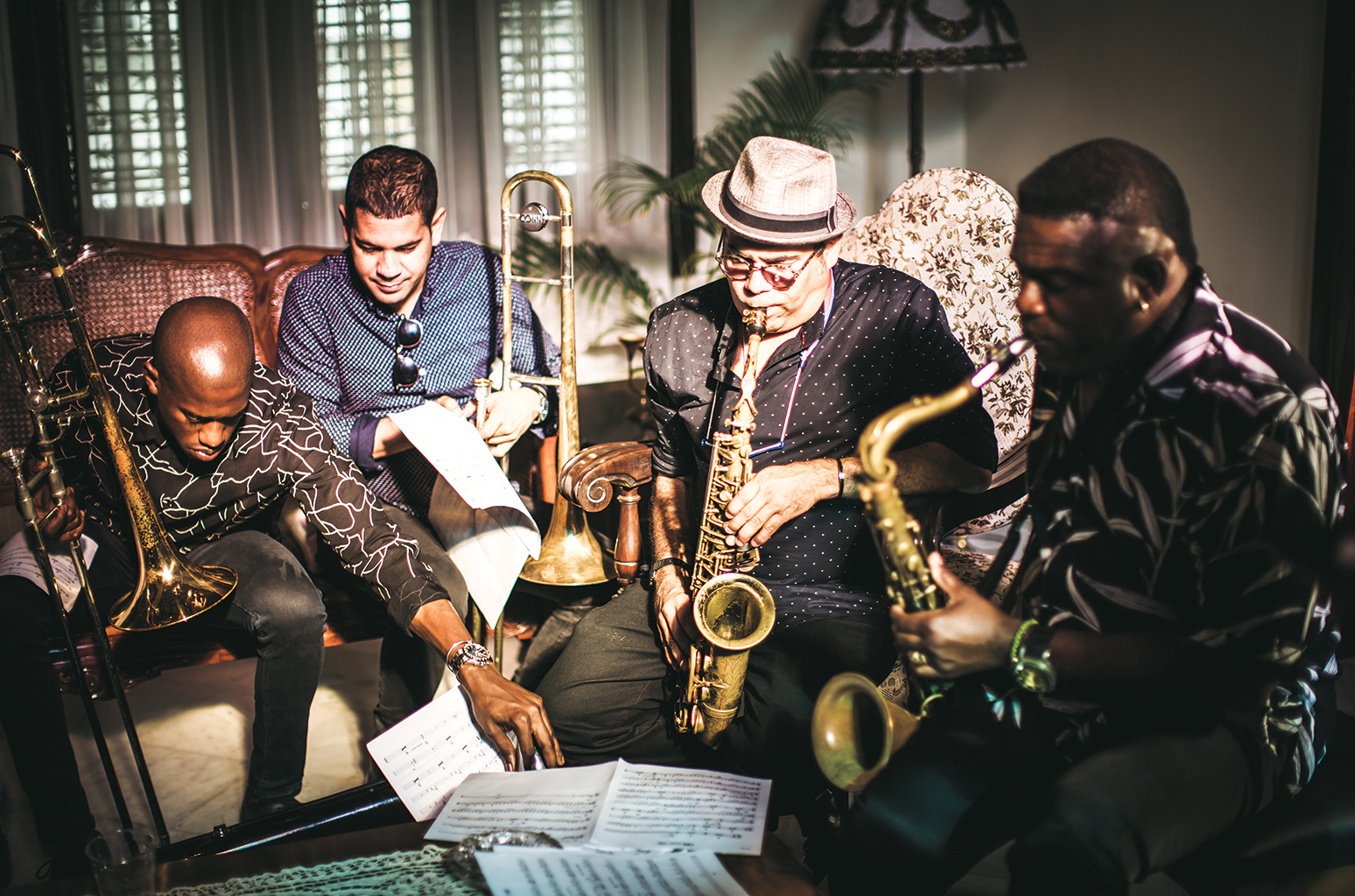How Daptone Records is Betting on Mambo For Its Own Latin Crossover
Daptone Records, a Brooklyn-based label critical in revitalizing soul and funk — it released seven albums from Sharon Jones & The Dap-Kings, whose bandmembers also backed Amy Winehouse on Back to Black — is answering the post-“Despacito” Latin-music craze with its own, first-ever Latin release, a typically left-of-mainstream pick: a mambo album from big band Orquesta Akokán.
True to its name — Orquesta Akokán translates to “from the heart” or “soul” — the self-titled release, out March 30, digs into the heart of 1950s Cuban rhythm in an attempt to bring back the sound that kickstarted America’s fascination with the Caribbean isle. “Mambo was popular in Cuba, but it had a short window because it came about right before all these political changes, and musicians left the country,” says the album’s producer, Jacob Plasse, referring to the 1959 revolution that brought Fidel Castro to power and drove 500,000 residents from the nation over the next 20 years.
This isn’t the first time the sounds of prerevolutionary Cuba have been revived through an eclectic ensemble — 20 artists formed Buena Vista Social Club and released an eponymous album in 1997 that sold 1.9 million physical copies in the United States, according to Nielsen Music. But Orquesta Akokán comes at a complex time in U.S.-Cuban relations, now tense due to President Donald Trump’s isolationist policies, prompting Plasse and Daptone co-founder Neal Sugarman’s concerns about securing visas for the Cuban musicians if the band wants to tour.
New Jersey-based veteran vocalist José “Pepito” Gómez, however, had no issue traveling with Plasse to Havana’s famed Estudios Areito studio to record the album in November 2016. There, Gómez and players from modern Cuban groups like Irakere and Los Van Van spent three days laying down tracks live to tape.
“Mambo was a sound that became an ambassador for Cuban culture, opening the doors for writers, musicians and arrangers to a public beyond the island,” says Gómez. “We wanted the music to have the beauty and power of those original mambo recordings, while being true to our [current] lives and experiences.” The nine-track debut pulses under a powerful horn and rhythm section, a fitting homage to mambo greats Pérez Prado and Israel “Cachao” López.
Citing the label’s roots in sustaining funk, soul and early R&B genres, Sugarman says he has long wanted to release a Latin music album and felt that mambo “fits into our aesthetic.” Adds Plasse: “[Mambo is] timeless. I don’t know if people will be listening to ‘Despacito’ in 20 years, but someone’s definitely going to be listening to Benny Moré.”
